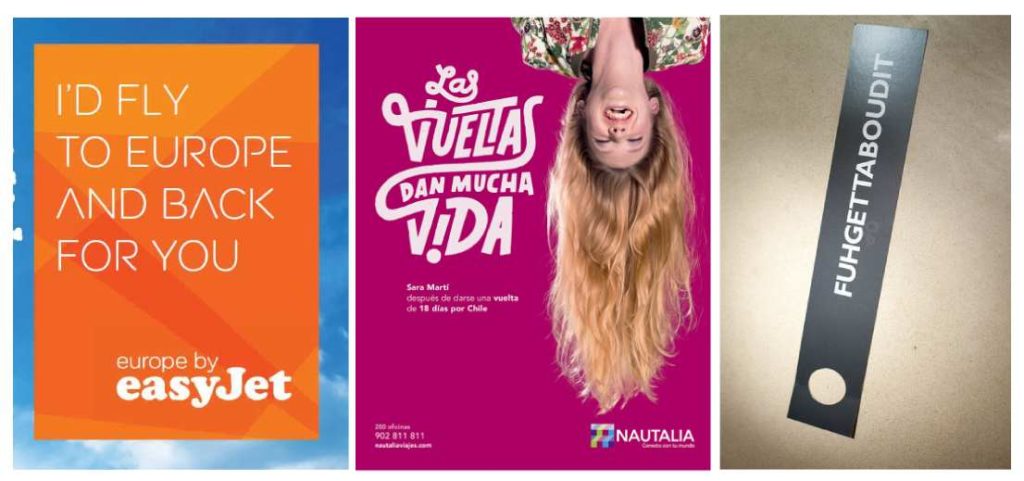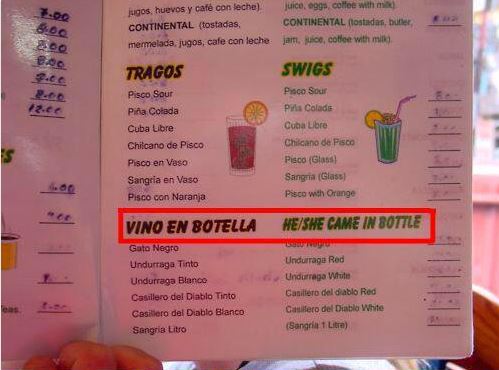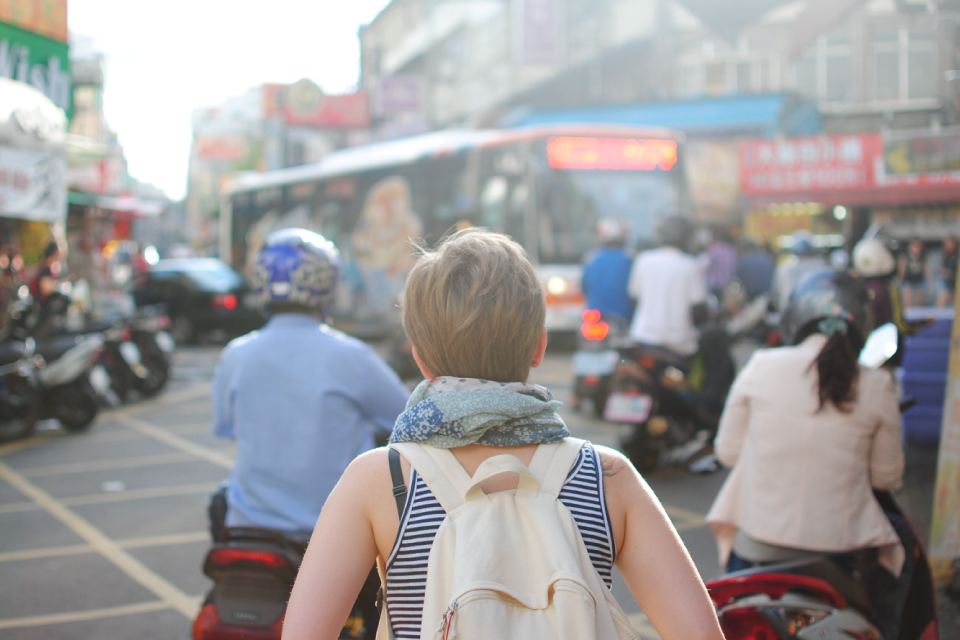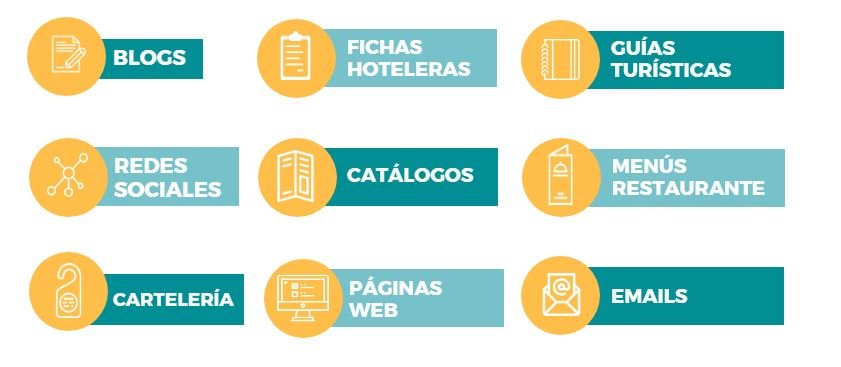In the tourism sector, translation is a basic need, and the companies that operate in this area know that only too well. Whether they’re hotels, travel agencies or any other kind of business related to tourism, these companies want to reach the highest possible number of people, in as many countries as they can. And how can you reach them, unless you speak their language?
If translation has always been important for companies connected to tourism, with the internet boom it’s now even more so. The tourism sector has been one of the fastest (and best) at adapting to digitalisation, and people have quickly got used to booking their hotels, flights or day trips on the internet. If you look at the figures, you can see that three out of four people now book their holidays online rather than going to a traditional travel agency.
In fact, whilst someone might be reluctant to buy an expensive piece of furniture online, they aren’t as reluctant to buy flights or a ticket for a cruise ship, although the price might be the same. The speed with which digitalisation has affected the tourism sector is thanks, amongst other things, to the fact that this kind of industry involves a large number of transactions between customers and companies, and the internet has sped up these processes enormously.
The strong entrance of the tourism sector into the digital world has obliged the companies involved to translate all kinds of content. The internet has no barriers and the number of potential clients has grown exponentially (and they speak lots of different languages!).
Why should tourism companies translate their content?
There are lots of reasons why a tourism company should translate its texts. Some of them might not have occurred to you before.
Below, we’ll sum up the three most important ones.
Because clients don’t trust poorly translated web pages
No, this isn’t specific to translation for tourism, but is true for any company that wants to tap into markets in several languages. In fact, there are figures that confirm that about 80% of the users of the Internet would think twice before buying anything on a poorly translated web page.
You may well wonder why. At a time when most and more of us use automatic translators like Google Translate, it would be logical for us to be more ‘accepting’ of bad translations. However, that’s not the case, and it definitely isn’t true for tourism translations.
When someone is going to use their credit card to pay for or book something, they pay a lot of attention to the site they’re buying on. Small details like a wrongly-used synonym or a phrase that doesn’t make sense can have a huge impact. Mistakes like this suggest carelessness and don’t inspire confidence.
Because it’s a quick way of expanding your market reach
We’re not saying that translating your web page to another language is the only thing that you need to do to reach clients in new countries… but it’s a big step in the right direction.
For a tourism company, the translation of their website, their social networks, their blogs and so on should be standard. Although people often use English as an international language, clients want information in their own language.
Because it helps with SEO
Your SEO strategy should be different for each language. That’s not a decision we’ve made, it’s all down to Google. For example, let’s imagine a travel agency that specialises in luxury trips has an article that ranks well for the keyword “holiday resort Maldives”. If you decide to translate it to French, the new article will start from zero in Google’s eyes.
That’s why it would be extremely difficult (or totally impossible) for tourism companies that only have their web page in English to rank in searches in other languages. If you want to reach your clients through organic searches, it’s well worth providing content in their own language, otherwise search engines won’t make things easy for you.
Translating for tourism: More complex than you might think
Lots of translators go into translating for companies in the tourist sector because they think it’ll be easy. It’s not an industry full of technical terms, and texts tend to be brief and relatively direct. However, it’s not as easy as it looks.
Translation for tourism brings its own issues with it and it’s important to have a translation agency that specialises in the sector and knows how to deal with these.
Some of them are:
The messages have to be adapted to the culture of each language
The tourism sector is generally associated with leisure, and that translates into its messages. Airlines, travel agencies, hotels and airports… All of these try to adapt their communication to the way the client speaks and use messages that are attractive and familiar. Messages that the client feels they can identify with.

That, whether we like it or not, isn’t easy to translate! The translator needs an in-depth knowledge of the country they’re translating for if they want to maintain the original tone of the message.
The translator doesn’t really know what they’re talking about
A really important part of translation for tourism is content in which the company talks about a city, a landmark or any other spot that’s worth visiting. In these cases, original texts tend to include all kinds of details and subjective judgements to make them as visual and attractive as possible.
If a translator has never visited these places and doesn’t know what they’re really like, it can be complicated to translate descriptions of them into another language. Imagine a text that talks about a remote village in the Scottish Highlights, and what particularly picturesque path you should take to reach the centre. Even if you understand the original text, it’s difficult to translate it and be 100% sure that what you’ve described is true to reality.
Sometimes, it’s even necessary for the translator to look for extra information about the place (like travel guides and other blogs), to confirm that the place you’re describing really is as you’ve understood it.
What you should look for in an agency that does tourism translation
We’ve seen why a company in the tourism sector should translate their content and what the difficulties can be when working with this kind of company.
If you’ve decided to get on board, and you need a translation agency to help you with this process, there are various factors you should take into account:
Choose an agency with native translators
We’ve already seen that one of the main difficulties of tourism translations is that the messages tend to be informal and very much adapted to the culture of each country. That’s why working with native translators is key. There’s no doubt about it. A native professional is a basic requirement for any translation but is even more important in translation for tourism.
The translation agency which you trust with your content should have native translators and, ideally, should live in their country of origin. The professionals that work at BigTranslation fulfil both criteria. Being native means that they’re experts in the language they translate into; and living in their country of origin means that they’re up to date with the subtleties that are continually being introduced into a language, and that are difficult to keep up with if you don’t live the language on a daily basis.
Your agency for translation for tourism should have knowledge of SEO
As we’ve already mentioned, one of the main attractions of translating your content is the boost that it will give your website’s SEO. However, it’s not just enough to translate an article and upload it. There needs to be some behind the scenes work done, researching keywords, and the content has to be written in an optimised way, so that it ranks on search engines.
In the original language this can easily be done by the company that generates the content, but in a translated text it’s not so simple. It’s not easy to know which keyword is the right one when you don’t speak a word of the language! That’s why you need to look for a translation agency that has knowledge of SEO and knows how to adapt texts so that they rank properly.
What can an agency that specialises in tourism translate?
The possibilities are endless! Different companies might need very different translations.
However, there are certain types of content that come up again and again.
- Blogs: Marketing campaigns in the tourism sector are aimed at building a familiar relationship with the potential client, and blogs are the perfect way of reaching out to them. Whatever your business sells (even if it’s B2B), a blog with a good content plan is a unique tool for connecting with your clients.
- Hotel descriptions: For hotels or any other kind of accommodation. If you want to show up on comparison sites like Booking or TripAdvisor, your presentation should be perfect. Choose a professional tourism translation service that will guarantee you a fail-safe text.
- Tourism guides: The salvation of any traveller. You can translate guides into any language and help your clients to find out more about the spots they can’t miss.
- Social media: Posts about holidays on social media tend to be extremely inspirational and really visual, with pictures of dream destinations. However, the text that accompanies them boosts engagement. If you have your page translated to various languages, why not translate your social media posts too?
- Brochure: You can translate any sales brochure that you want to give to your clients, whether it talks about your business, or offers extra services to increase sales.
- Restaurant menus: This one needs no explanation, right? Be careful to choose a good tourism translation agency so that you don’t end up publishing something like this:

- Signage: All the signage you need for your business. Hotels and restaurants often need these to guide their clients, whether it’s a sign letting them know that breakfast finishes at 10 o’clock, or one explaining what to do in the event of a fire. The translation needs to be a good one if we want the message to be correctly communicated.
- Website: Yes, you can translate your whole website without dying trying. There are different tools that help you to do it on a technical level, but you’ll need an agency specialised in tourism translations to take charge of the content and return it to you ready to be uploaded onto your site.
- Emails: Email is a medium that’s easily segmented, so it shouldn’t be difficult for you to classify your clients by language. Once you’ve done so, you can send each of your email marketing campaigns in the right language. Segmentation is down to you, but leave the translation to an agency.
These are some of the things that an agency can translate for your tourism business. But that’s not all! You can translate a lot more than that. All of the content you use to reach your clients can be translated into any language you need. You can subtitle videos, or transcribe audiovisual content… The possibilities are endless.
Whatever it is, remember to use a translation agency that specialises in the tourism sector and that has the necessary knowledge to create impeccable translations. At BigTranslation, we’ve been working with tourism companies of all kinds for years, and we know the difficulties that can crop up and how to deal with them. What’s more, we only work with native translators and offer you the best rates on the market.



